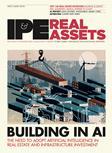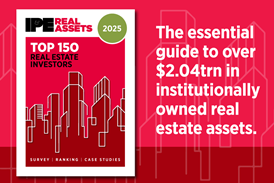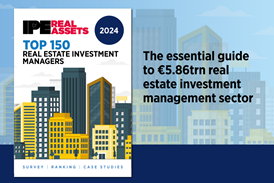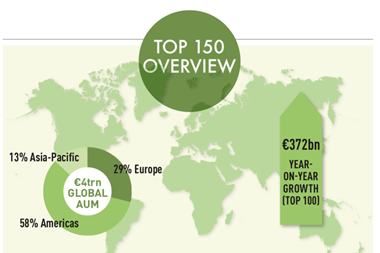Adoption of new technology could enable the largest real estate investment managers to pull even further away from their smaller counterparts, according to a report by Pi Labs and the University of Oxford.
Technology and the Future of Real Estate Investment Management, published by venture-capital firm Pi Labs and Professor Andrew Baum of Oxford Saïd Business School, predicts how critical data will become for industry.
“Within all other industries, digitalisation has led to industry concentration,” the report says. “Those companies which have the biggest user base will be those best poised to scale under the new market dynamics of real estate as a digital industry.”
As shown by 91��ý����’ recent Top 150 real estate investment managers ranking, of the €4trn in assets under management, about one third is managed by the 10 largest alone. The €1.23bn managed by the top 10 is greater than the total AUM of the bottom 75 (€1.09bn).
Despite Pi Labs and Oxford University argue that “no firm has a dominant market share”, pointing to “remarkable instability in the fund manager league table”, often the result of mergers and acquisitions.
But new technology that could open up new markets and efficiencies could change the situation. “As the big investment management firms are likely to increase their market share, the message is clear: if you are not already experimenting with the use of alternative big data, proprietary machine learning models and emerging digital platforms, you are running the risk of becoming a clear casualty of the digital transformation about to take place,” the report concludes.
“Those companies which have the biggest user base will be those best poised to scale under the new market dynamics of real estate as a digital industry.”
There have been a number of investments by real estate investment managers in proptech this year – most recently €44.4bn real estate fund manager Patrizia committed capital to Camber Creek Fund III which will invest in proptech companies in North America.
Patrizia has a history of investing in new proptech funds and individual start-ups. It also invested in Taronga Ventures’ RealTech Ventures Fund and Pi Labs’ third fund.
But the report finds that only 25% of real estate investment firms have an established data strategy. “The most urgent need is for investment managers to structure, standardise and digitalise their existing data in order to accurately and efficiently position their portfolios, a task which can be tackled using today’s technology,” the report says.
“Only once this is achieved will the insights offered by alternative big data sources be able to reveal new components of value.”
The situation is likely to be exacerbated by the growing ‘operational’ nature of real estate – a phenomenon driven by the growth of alternative sectors with operational aspects and the shift within traditional sectors – such as offices – to become more services-focused.
“Traditional real estate investment is non-operational, meaning that investors receive a stable, net rent through a long lease which pushes a lot of costs and risk onto the tenant,” the report says.
“As leases reduce in length, the operational costs cannot be pushed onto the tenant through an FRI lease, meaning that attention has to be paid to the cost line. Attention also has to be paid to the revenue the real estate can generate, because lease renewal or tenant rollover will become more important.
“If and when real estate investors embrace this they will be thrust into a different world of employees, health and safety, feedback platforms and big data. This offers opportunities for diversification and growth, but also requires an understanding of customer relationship technology.”
The report also predicts that real estate assets with new social accreditations will “soon fetch a premium”.
“As new, crowd-sourced social indicators of asset performance come to fruition through tenant experience apps or office booking platforms, and as industry benchmarks expand to include measures of a building’s smartness, owners who adhere to ESG investing will be able to justify charging higher rents, subsequently increasing the value of the asset at disposition,” it says.
To read the digital edition of the latest 91��ý���� magazine click here.














